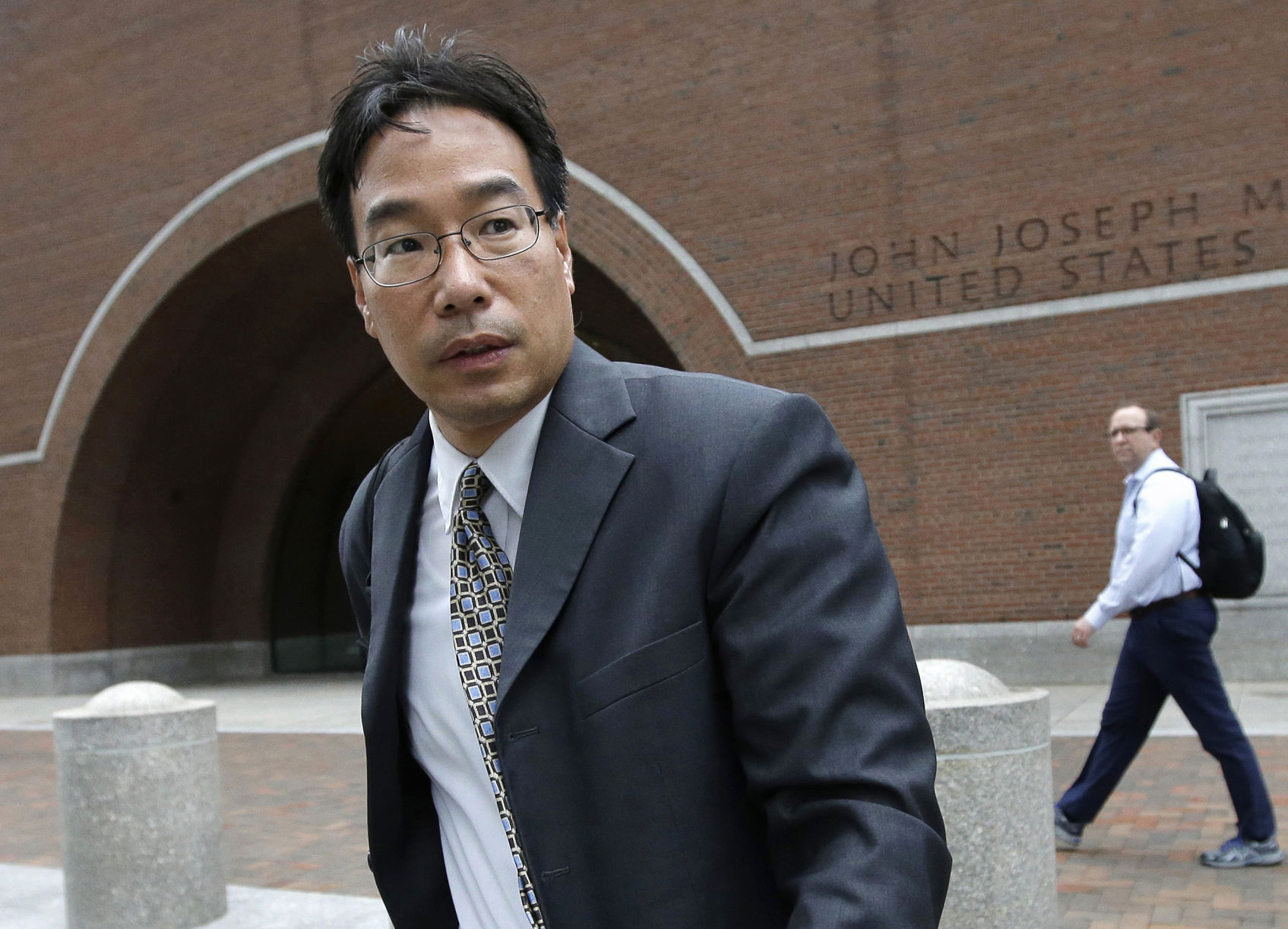BOSTON (AP) — A pharmacist at a facility whose tainted drugs sparked a nationwide meningitis outbreak that killed 76 people was cleared Wednesday of murder but was convicted of mail fraud and racketeering. Jurors said prosecutors failed to prove Glenn
BOSTON (AP) — A pharmacist at a facility whose tainted drugs sparked a nationwide meningitis outbreak that killed 76 people was cleared Wednesday of murder but was convicted of mail fraud and racketeering.
Jurors said prosecutors failed to prove Glenn Chin was responsible for the deaths of people who were injected with mold-contaminated drugs produced by the now-closed New England Compounding Center in Framingham, just west of Boston. As the supervisory pharmacist, Chin oversaw the so-called clean rooms where the drugs were made.
Chin’s attorney said he saw the verdict as a victory. He said prosecutors overreached by charging Chin with second-degree murder acts under federal racketeering law.
“This was never, ever, ever — no matter what these prosecutors tell you — this was never a murder case,” Chin’s attorney Stephen Weymouth said after the verdict was read at Boston’s federal courthouse.
Scott Shaw, whose mother, Elwina Shaw, died after she was injected with the contaminated drugs, said he was surprised and disappointed jurors refused to find Chin responsible for the deaths.
“It was his hand, no doubt, that mixed that medicine that killed mom,” the North Carolina man said.
Prosecutors said Chin instructed his staff to use expired ingredients, failed to properly sterilize the drugs and ignored findings of mold and other bacteria in the rooms.
Chin’s attorneys argued he can’t be blamed for the deaths because there’s no evidence he caused the drugs to become contaminated. The attorneys blamed the pharmacy’s co-founder Barry Cadden, who they said treated employees poorly and ordered them to cut corners to increase production and profits.
Jurors acquitted Cadden of second-degree murder under the federal racketeering law but found him guilty of fraud and conspiracy. Cadden tearfully apologized to the victims in June before he was sentenced to nine years in prison.
Chin was charged with the deaths of 25 people in Florida, Indiana, Maryland, Michigan, North Carolina, Tennessee and Virginia. He would have faced up to life in prison had he been convicted of the murders. He is set to be sentenced in January.
Experts and even Chin’s attorney had said before the trial that they believed prosecutors had a stronger case against Chin than they had against Cadden because Chin was the one mixing the drugs in the clean rooms.
The outbreak of fungal meningitis and other infections was blamed on contaminated injections of medical steroids, given mostly to people with back pain.
More than 700 people in 20 states were sickened in what’s considered the worst public health crisis in recent U.S. history. The federal Centers for Disease Control and Prevention put the death toll at 64 in 2013. Federal officials identified additional victims in their investigation, raising the number of deaths to 76.
“Mr. Chin ran NECC’s clean room operations with depraved disregard for human lives,” Acting U.S. Attorney William Weinreb said in a news release Wednesday. “As a licensed pharmacist, Chin took an oath to protect patients, but instead deliberately violated safety regulations.”
FBI special agent in charge Harold Shaw said Chin “gambled with patients’ lives” by cutting corners and ignoring the warning signs that his production methods were unsafe.
“Hundreds of patients were unnecessarily harmed from his reckless disregard for health and safety regulations,” Shaw said.
The outbreak sparked calls for increased regulation of compounding pharmacies, which differ from ordinary drugstores in that they custom-mix medications and supply them directly to hospitals and doctors. Congress in 2013 passed a bill giving federal officials more oversight of the pharmacies.
———
Follow Alanna Durkin Richer at http://twitter.com/aedurkinricher. Read more of her work at http://bit.ly/2hIhzDb


